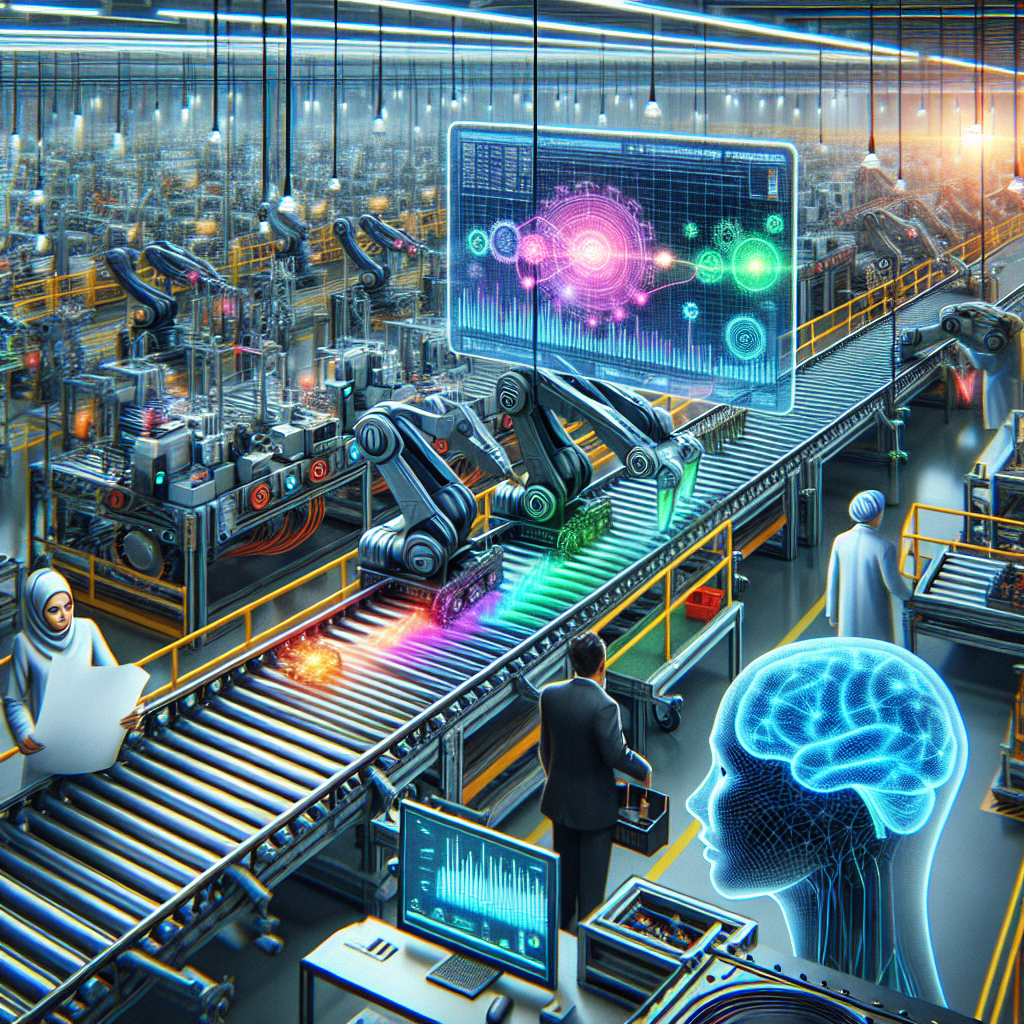In the fast-paced world of manufacturing, keeping track of real-time performance is crucial to ensuring efficiency, productivity, and quality. With the advancements in technology, artificial intelligence (AI) has emerged as a powerful tool for real-time performance monitoring in manufacturing.
AI utilizes machine learning algorithms to analyze data and identify patterns that can help manufacturers make informed decisions in real time. By leveraging AI for performance monitoring, manufacturers can gain valuable insights into their operations, identify areas for improvement, and make data-driven decisions to optimize productivity and reduce downtime.
One of the key benefits of using AI for real-time performance monitoring in manufacturing is the ability to detect anomalies and issues before they escalate. By monitoring key performance indicators (KPIs) in real time, AI can alert operators to potential problems, allowing them to take corrective action before a major issue occurs. This proactive approach can help manufacturers prevent costly downtime and improve overall efficiency.
Additionally, AI can provide predictive maintenance capabilities, allowing manufacturers to anticipate equipment failures before they happen. By analyzing historical data and identifying patterns, AI can predict when a machine is likely to fail and alert operators to take preventive measures. This can help manufacturers avoid unexpected breakdowns, reduce maintenance costs, and extend the lifespan of their equipment.
Furthermore, AI can optimize production processes by analyzing data in real time and identifying opportunities for improvement. By monitoring key performance metrics, such as cycle time, throughput, and quality, AI can identify bottlenecks, inefficiencies, and areas for optimization. This can help manufacturers streamline their operations, increase productivity, and reduce waste.
Overall, using AI for real-time performance monitoring in manufacturing can help companies stay competitive in today’s fast-paced market. By leveraging AI’s capabilities to analyze data, detect anomalies, predict failures, and optimize processes, manufacturers can improve efficiency, reduce costs, and enhance overall performance.
FAQs:
Q: How does AI gather real-time performance data in manufacturing?
A: AI gathers real-time performance data in manufacturing by collecting data from various sources, such as sensors, machines, and production systems. This data is then analyzed using machine learning algorithms to identify patterns, trends, and anomalies that can help manufacturers monitor performance in real time.
Q: What are some common KPIs monitored using AI in manufacturing?
A: Some common KPIs monitored using AI in manufacturing include cycle time, throughput, yield, quality, downtime, and equipment utilization. By tracking these KPIs in real time, manufacturers can gain valuable insights into their operations and make data-driven decisions to optimize performance.
Q: How can AI help manufacturers improve productivity and efficiency?
A: AI can help manufacturers improve productivity and efficiency by analyzing data in real time, identifying bottlenecks and inefficiencies, and providing insights for optimization. By leveraging AI’s capabilities to monitor performance, manufacturers can streamline their operations, increase throughput, and reduce waste.
Q: What are the benefits of using AI for predictive maintenance in manufacturing?
A: The benefits of using AI for predictive maintenance in manufacturing include reducing downtime, extending equipment lifespan, and lowering maintenance costs. By analyzing historical data and predicting equipment failures, AI can help manufacturers anticipate maintenance needs and take preventive measures to avoid unexpected breakdowns.
Q: How can manufacturers implement AI for real-time performance monitoring?
A: Manufacturers can implement AI for real-time performance monitoring by integrating AI-powered systems with their existing production systems. By collecting data from sensors, machines, and other sources, AI can analyze performance metrics in real time and provide actionable insights for optimization.

